7 Challenges Cruising Now Faces
What are the seven big challenges cruising now faces?
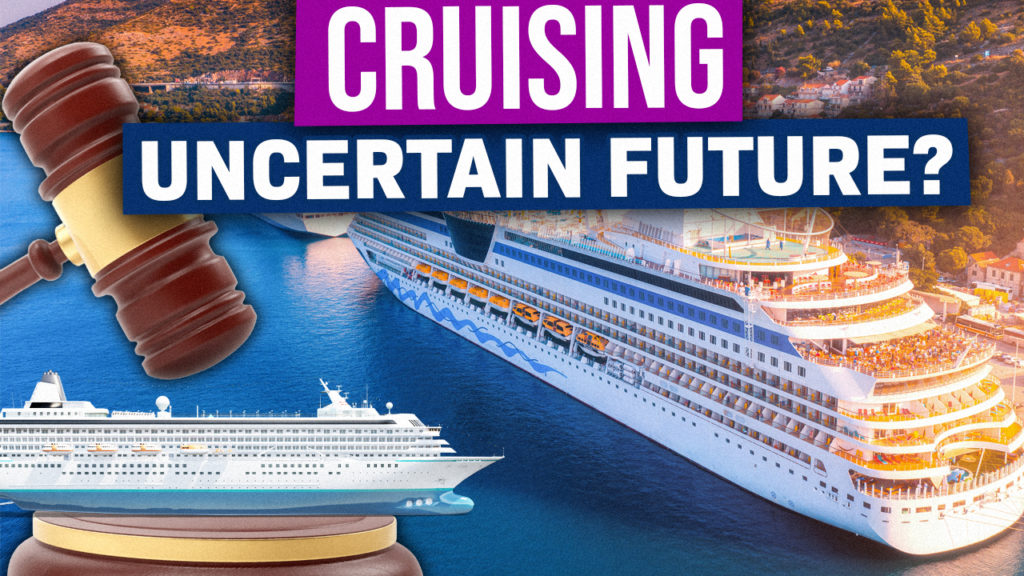
I want to take a look at the seven things that I think cruise lines are going to have to do before they’re going to be able to start cruising again. These are things that I’ve seen people talk about, plus some of my own views, and I thought I would share those with you. So, what are the seven big challenges cruise lines face and will have to have a plan to resolve?
Travel advisories
The first big challenge they face is that it’s not the cruise lines’ decision as to when they can start up again, because at the time of writing this we still have a blanket travel ban. In the US, the Centre for Disease Control currently has a level 3 warning in place recommending that travellers defer all cruise travel worldwide.
In the UK where I am, the government has a travel advisory which talks about no travel indefinitely. Of course, at some point in time, there will be a date set for travel. I do also think that cruising will be fairly low down on the list of restrictions being lifted because of all the issues that were created and the publicity it got before and during the whole beginning of the shutdown.
So, one of the big challenges they face is they are not able to be in control of when they want to start cruising and I do think we’ll see restrictions lifted quicker perhaps on airlines and train travel. One of the things I guess we’ve learned through this whole process is that the cruising companies don’t actually have as much influence and political sway as perhaps they thought they did.
This has largely come out through the fact that they are not incorporated in countries like the United States or the UK, or big cruising ports or places like Spain. They actually have relatively little clout and that really came to the fore, because, I guess, they realised through the whole bail out process that both politicians and the public thought a lot about the fact that these companies are incorporated in tax havens like Panama, Liberia, and the Bahamas. There was a sense that these aren’t national companies, that cruising is a leisure industry and it’s going to be low in priority for authorities to lift those restrictions.
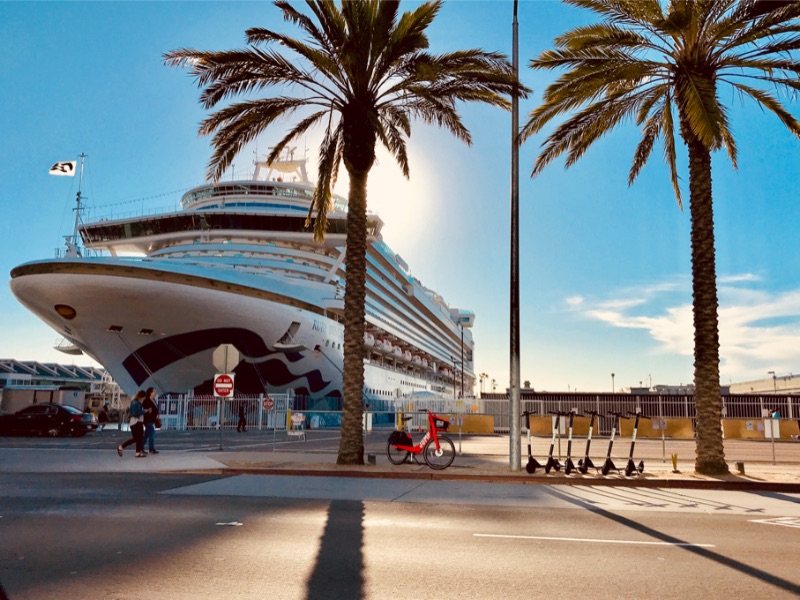
Perception and reputation
The second challenge cruise lines face is that cruises have come to be seen as not good for public health, relatively unsafe, and unpredictable.
Cruising was always seen as this great safe way to travel: a way to see multiple destinations but only unpack once. Of course, what happened during the whole build up to the shutdown is that it was seen a risky place to be from a health perspective, and that the viruses could spread quite quickly because of the nature of how people were contained. It was also seen as unreliable because of quarantine issues, so people were worried about being able to get home and all of the risks and dangers and stress of being quarantined on a ship far away from home.
So, they have two big challenges to face.
First of all, there is hostility from the lawmakers, politicians, and ports. We even saw ports that have relied historically on cruising – or certainly earned a huge amount of money from cruising and cruise passengers – becoming very hostile. If you take a look at Florida, for example, where you’ve got the three biggest cruise ports in the world, they were very reluctant to take in ships that had issues on board.
They started to bring in regulations where they were talking about the Coast Guard not being available to medevac or evacuate crew and passengers, and that cruise lines had to organise it much more themselves. They then brought out a restriction which said that the crew and passengers coming off certain ships that were still out or had passengers during the lockdown wouldn’t be able to use commercial flights anymore – it had to be charter flights. So, they certainly faced quite a lot of hostility from both the ports and authorities and the public.
There’s a real push against cruising by a big swathe of people, and having created various videos on the subject, I’ve seen a large amount of comments that are very hostile to cruising and want to see it closed down. Even when I’ve asked the real diehard cruisers who are keen to go back, they’re really talking about 2021. And almost half the people I’ve asked about when they thought cruising would start up have said they think it will be into next year, so people are cautious about going back to sea.
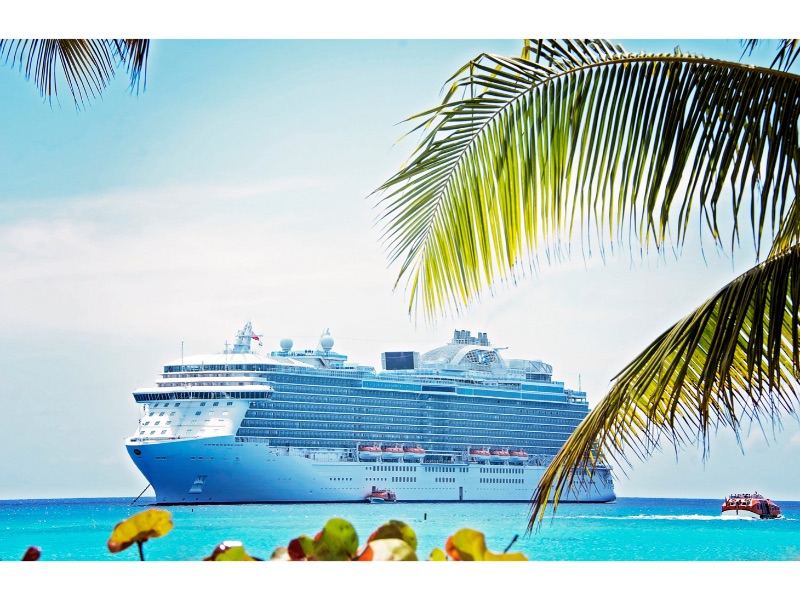
Ensuring no infected person boards
I think the third big challenge cruising faces is how to ensure that nobody who is infected comes on board a ship. What we learned is that whatever procedures were in place – even as they tightened up these procedures – they did not work. For example, if you take Celebrity Apex, this was a ship that hadn’t even gone into service and it still had an outbreak that spread through the crew on board helping to get the ship ready for delivery.
So even before passengers were due to come aboard, they had an issue. We also saw outbreaks happening even when passengers had effectively been on board for that 14-day normal quarantine period on ships who were stuck at sea for a long time, sailing around the world, trying to find a port.
One of the things we know is that temperature checks aren’t particularly helpful because they only show when someone is already displaying symptoms. What we’ve learned from this virus is that first of all it takes many days before you actually show any signs, and a lot of people don’t actually have any symptoms at all.
Cruise lines historically relied on self-declaration: passengers filling out a form about whether they’d been ill and what countries they’d visited, and it relied on a people being honest. People were not incentivised to tell the truth on those forms in the old screening process, because if you put, ‘I’ve been suffering from diarrhoea or vomiting,’ you were then worried about being refused boarding or being locked in your cabin. There was no way that you could get your money back, so there was no motivation for people to be honest.
There’s clearly going to have to be a whole new screening process, whether that ends up being medical certificates to show that you’re immune, or vaccination certificates when they’re eventually available, or some kind of physical screening at embarkation. To make that work, cruise lines will then also have to be much more open and lenient around the embarkation and the cancellation process.
If you’re starting to feel ill before your cruise, you need to know there is an incentive to pull out of the cruise because you’re not going to be penalised and lose 100% or 75% of your fare. When you get to embarkation, you need to know that if there’s an issue and you’re screened out medically, you’ll get your fare back. So, I think a whole different way of working out a screening and boarding process will be absolutely key because ports are going to want to know that ships coming in aren’t carrying any passengers or crew who are likely to have the virus.
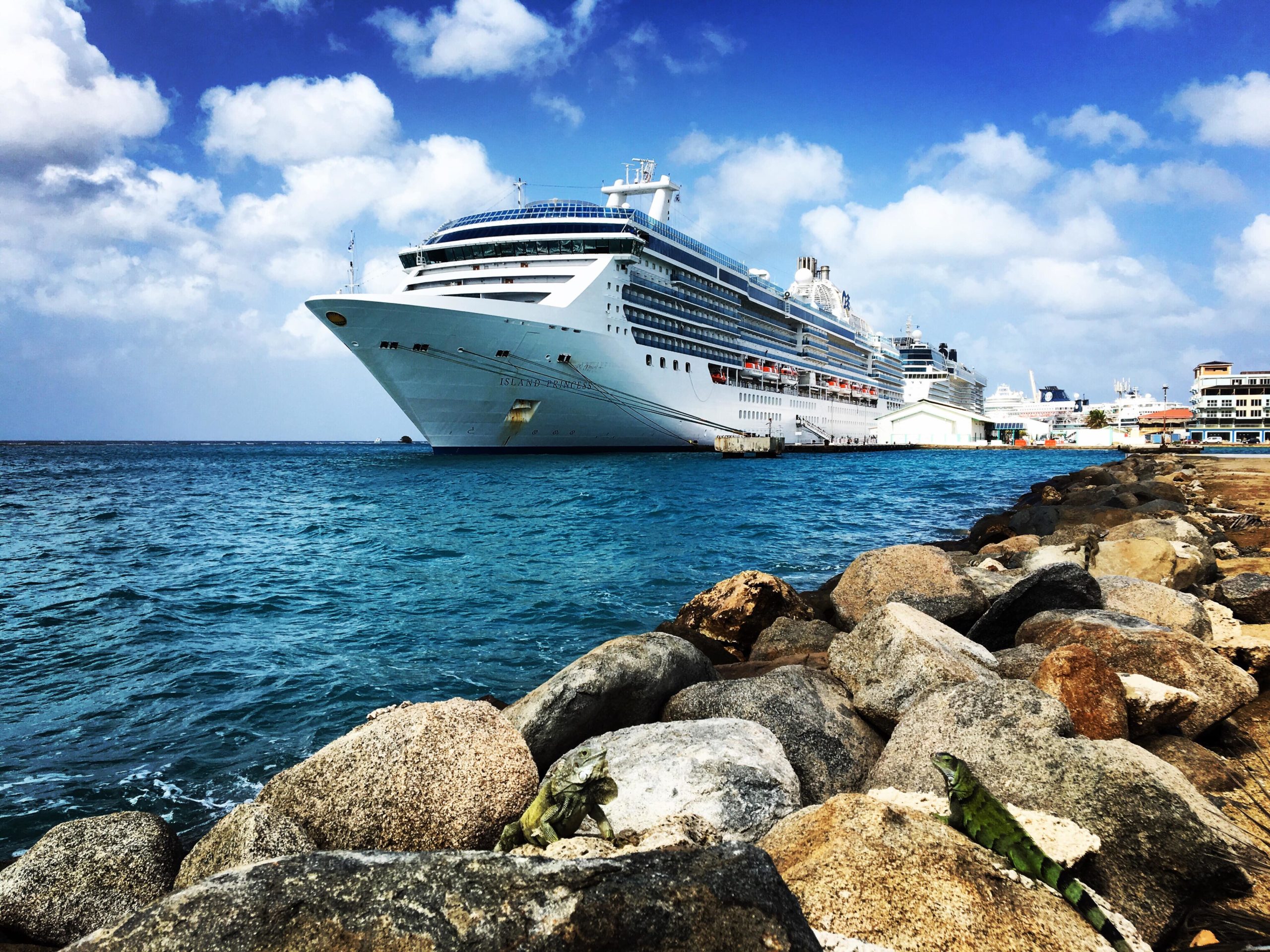
Keeping ships infection free
The fourth challenge that I think cruise lines are going to face is how they are going to make sure that once a cruise embarks, that a virus is not imported from a port. If you think about it when you visit a port on your cruise, you’re going to be going on tours, interacting with vendors in stores, visiting tourist sites, etc, so there’s a real risk that passengers or crew, quite innocently interacting in a port are going to bring it back on board the ship
On an average seven-day cruise, it is still possible if someone gets it early on, that you could have no symptoms or signs until later on in the cruise, which then, of course, triggers all sorts of problems. So, the big challenge, I think, for the cruise industry is how they’re going to be able to make sure that they can keep the ship infection free as they start calling on ports. Whether this means they’re almost going to have to go to no-port cruises or only go to private islands where they control and test much more, but it’s a big challenge.
I’ve been seeing stuff from some of the cruise lines, like Genting Cruise Lines, for example, which is Star Cruises, Dream Cruises and also Crystal Cruises, where they’re looking at the whole process from embarkation onwards, for example scrapping the self-service buffet and only having food served by staff; rigorous cleaning protocols with lifts being cleaned every two hours, and cabins being wiped down multiple times; equipment being wiped down multiple times, etc.
There are going to be huge changes put into place before cruises are going to be able to get approval to start sailing again. One of the other things that I think they’re going to have to reassure people on is air-conditioning systems, and whether that’s actually a way that it spreads because of the airborne nature of the virus, especially in relation to the Diamond Princess.
One of the things that really stuck out to me in the Genting discussion document was that they talked a lot about how the air-conditioning only brought in air from outside, it wasn’t recycled air, because I think they realised that – rightly or wrongly – there’s real concern around the efficiency and safety of air-conditioning.
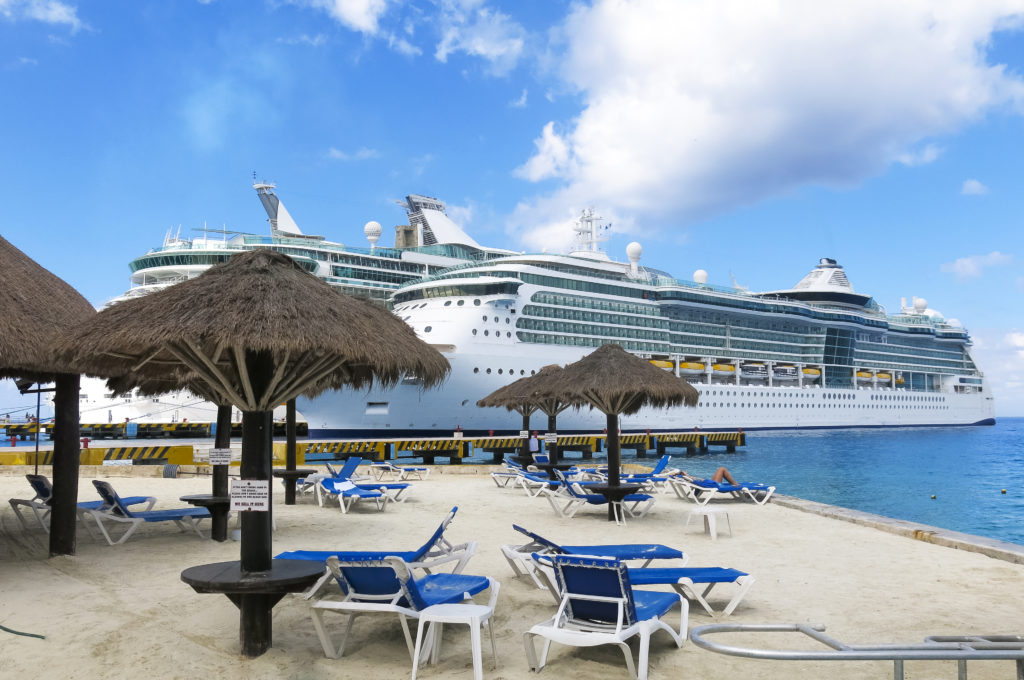
Outbreak processes
I think the fifth challenge cruises faces is how they are going to put better procedures in place if there is some kind of breakout.
I think one of the things they’re going to have to do is re-assess the whole medical centre, for example. Medical centres on cruise ships are really only designed to do basic triage and stabilise medical situations. As soon as they get to the next port, they basically will get patients out into the hospital if they need more treatment. What we discovered, of course, during this whole process is that ships will have to have larger, much more well-equipped medical facilities that can deal with people who require a higher level of care.
I think the whole way of dealing with an outbreak will have to change, with improved relationships with ports so that ships don’t find themselves locked out of ports as we saw in the outbreak.
Passengers need to feel reassured that if there is an outbreak onboard, that they’re not at risk of being stranded at sea in quarantine, and not being able to disembark. A lot of people who contact me are saying one of their big reservations about going cruising again is that they’re worried about being stranded for weeks on end if there’s an outbreak. I think that cruise lines will have to have a much more sophisticated and thorough crisis plan in terms of these potential outbreaks.
For example, we saw some cases in the run up to the lockdown where some governments were sending repatriation flights to help get passengers back home. Since then, governments have made it clear that this won’t be the case moving forward.
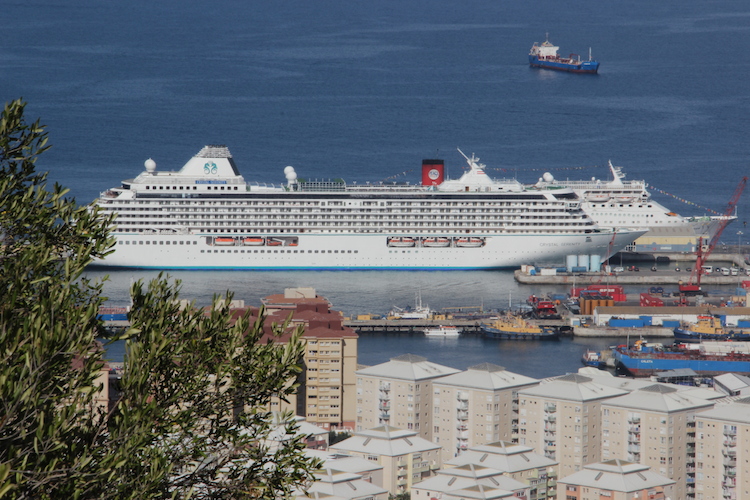
Lack of senior passengers
One of the biggest challenges facing cruise lines, certainly for the next year, will be operating and filling ships when an entire age group of passengers are basically locked out of cruising. In the run up to the outbreak, all governments, certainly the major cruising governments, were quick to recommend that people over 70 didn’t go cruising. Now, of course, in the lockdown, 70-year-olds are being encouraged to stay at home for many, many months.
Even when cruises are allowed to start operating again, it’s likely that governments are still not going to recommend cruising to the over 70s. Before the lockdown if you were over 70, you had to get a medical certificate saying that you could cruise. So, country restrictions on seniors travelling anywhere in the world, are going to have to be lifted.
Secondly, the documentation they are going to need before they travel is going to have to be made absolutely clear. This is a massive issue because there are many cruise lines and river cruise lines that rely very heavily on seniors, and many cruise lines have lots of passengers in their 70s and 80s. These people are probably going to be very nervous of travelling or be restricted in some way, for example finding that they’re unable to get travel insurance. So how can cruise lines operate when a major part of their audience is not going to cruise for a long period of time, probably not until there’s a vaccine available?
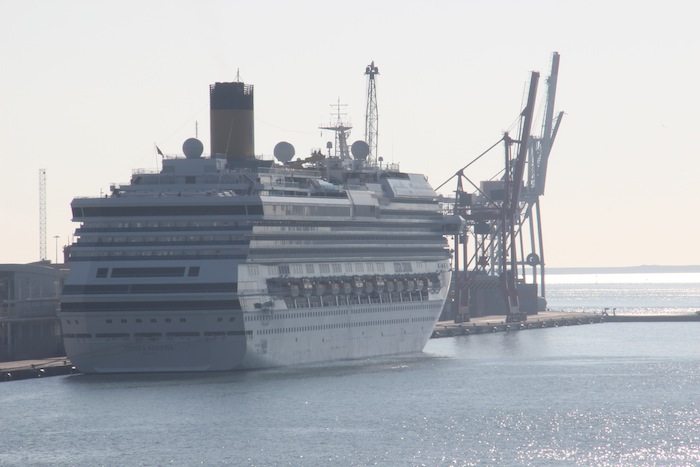
Travel insurance
Another big challenge the cruise lines are going to face is passengers being unwilling to travel because they can’t get travel insurance.
There are basically two critical issues with travel insurance: one is that travel policies don’t cover pandemic-related incidents, and this means that the cruise lines have to accept that if there are any issues, they’re going to have to cover a lot of those costs. Secondly, there may be more and more challenges or very high premiums if you are buying travel insurance that involves cruising.
Already when you book travel insurance, you need to make sure that it has cruising cover because there are potentially some really big costs if you fall ill or you need to be evacuated from a ship, or even repatriated. One of the solutions may end up being that cruise lines are going to have to build some kind of guarantees and insurance into their fares, covering costs, whether or not they’re pandemic-related. For example, in the UK, Saga Cruises build insurance into their fares because they because they target 50-plus, but they’ve had many people in their 70s and 80s that struggle to get travel insurance as it is, even before all of these issues.
I think there are a lot of challenges that cruise lines have to solve to really get the authorities, governments and ports on board before people are going to be willing to embark ships and set sail around the world.
Do you have any other thoughts in terms of what challenges the cruise lines are going to face before they start cruising again? Please feel free to comment and have a discussion and, of course, try to keep it as friendly and civil as possible. It’s good to hear what people think.
If you want to find out more about cruising, I’ve got loads more videos about cruising, both in the short-term and the long-term, and, of course, if you’re looking for inspiration for future cruising, once we’ve passed all of this and the challenges are solved, I have loads more on my channel, so why don’t you watch one of those right now?
Subscribe to Tips For Travellers YouTube Channel (click image):
Follow Tips For Travellers:
- Follow Tips For Travellers on: YouTube, Instagram, Facebook, Twitter and Pinterest.
- Sign up for the monthly newsletter. includes a free eBook to download every month.
- Never miss a post by signing up below and every new post will be sent direct to you.


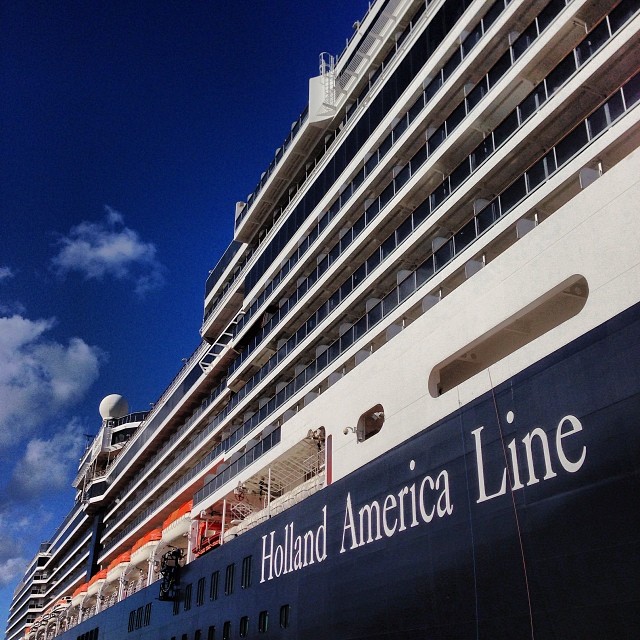
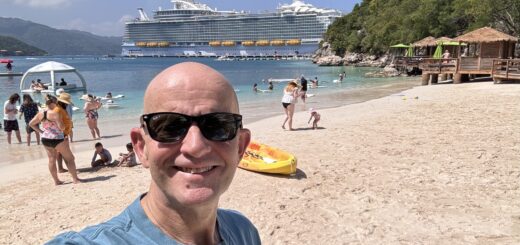
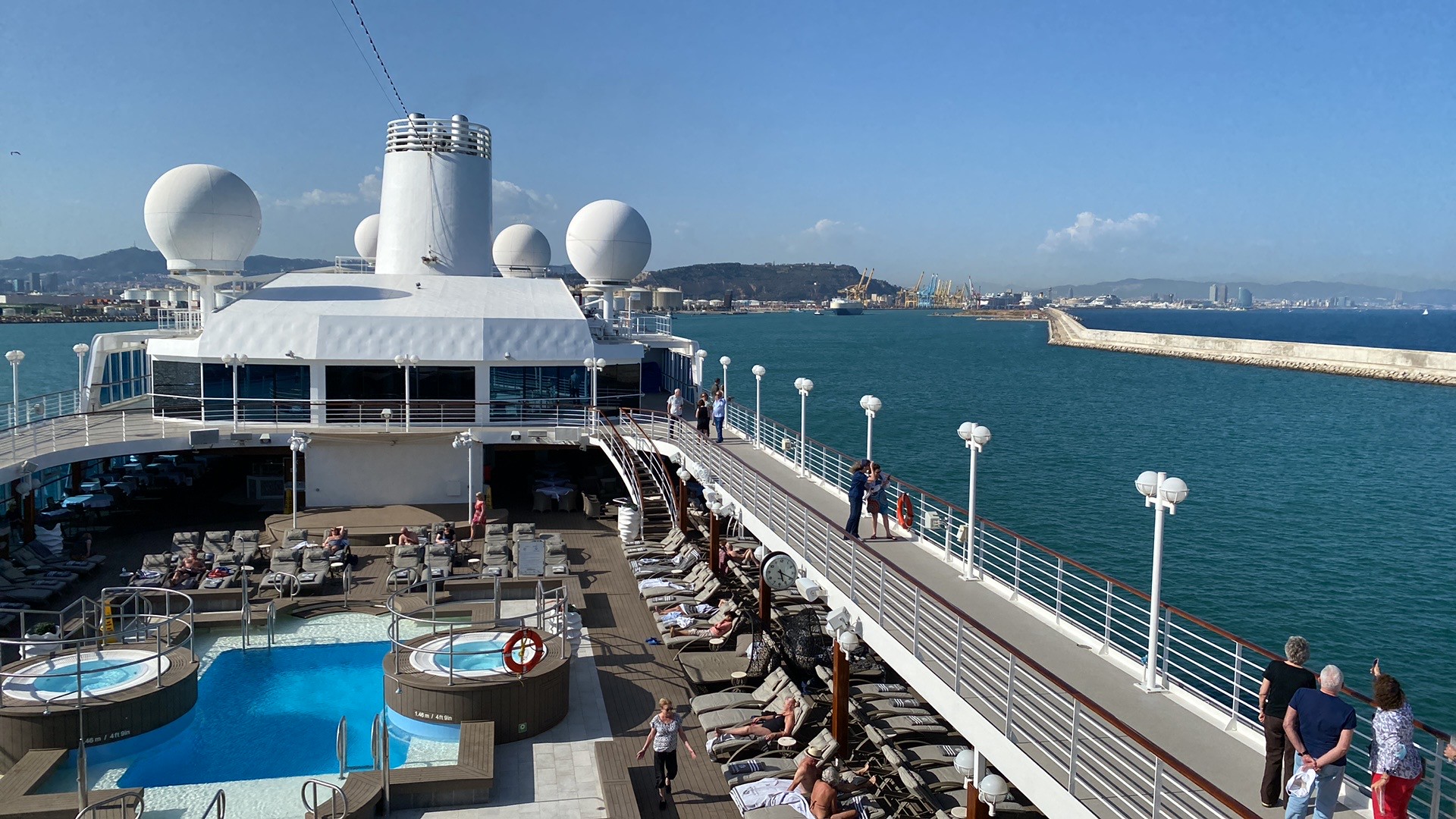










Thank you Gary
This article is wonderful to hear someone talk about possible changes
Keep up the good info